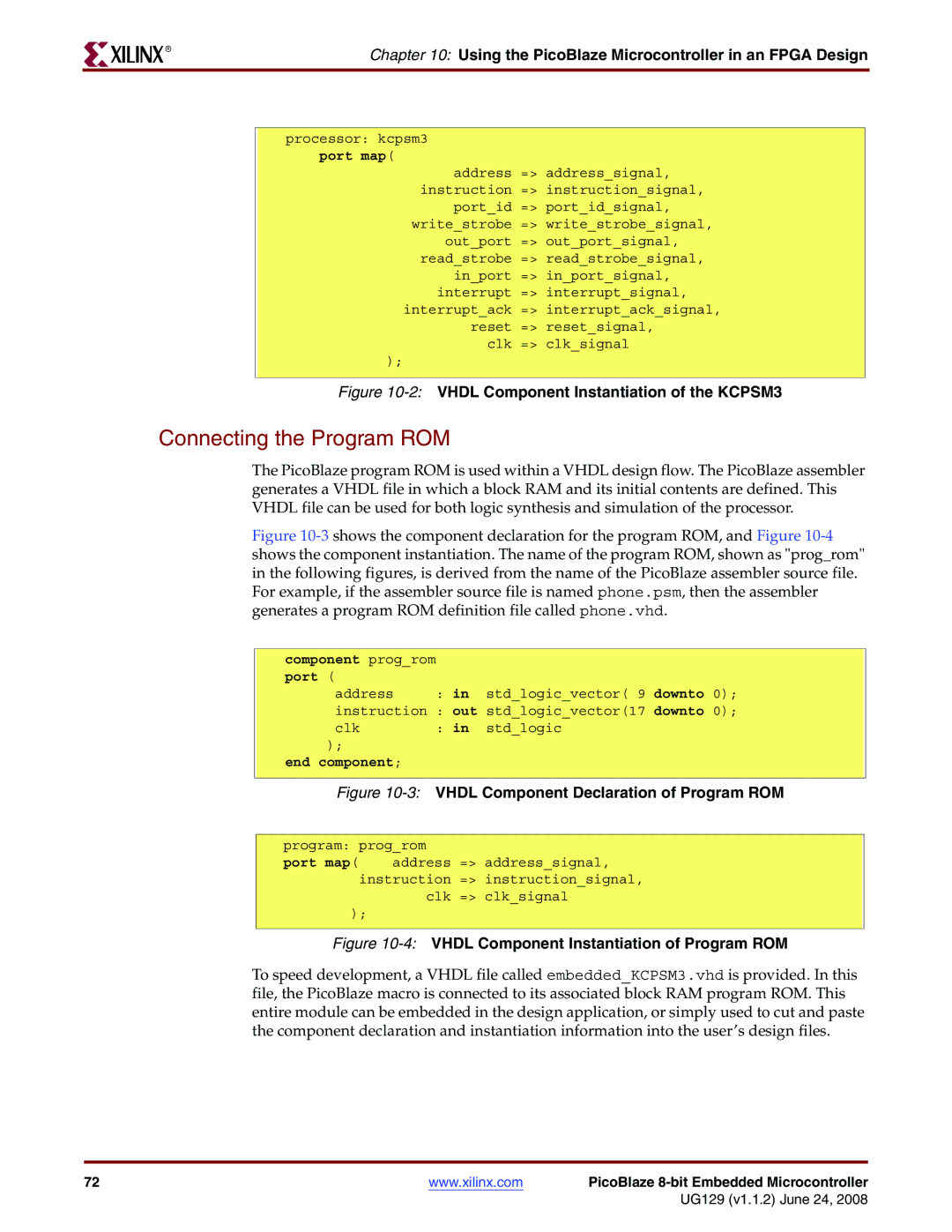
R
Chapter 10: Using the PicoBlaze Microcontroller in an FPGA Design
processor: kcpsm3
port map(
address => address_signal,
instruction => instruction_signal,
port_id => port_id_signal,
write_strobe => write_strobe_signal,
out_port => out_port_signal,
read_strobe => read_strobe_signal,
in_port => in_port_signal,
interrupt => interrupt_signal,
interrupt_ack => interrupt_ack_signal,
reset => reset_signal, clk => clk_signal
);
Figure 10-2: VHDL Component Instantiation of the KCPSM3
Connecting the Program ROM
The PicoBlaze program ROM is used within a VHDL design flow. The PicoBlaze assembler generates a VHDL file in which a block RAM and its initial contents are defined. This VHDL file can be used for both logic synthesis and simulation of the processor.
Figure 10-3 shows the component declaration for the program ROM, and Figure 10-4 shows the component instantiation. The name of the program ROM, shown as "prog_rom" in the following figures, is derived from the name of the PicoBlaze assembler source file. For example, if the assembler source file is named phone.psm, then the assembler generates a program ROM definition file called phone.vhd.
component prog_rom |
|
|
port ( |
|
|
address | : in | std_logic_vector( 9 downto 0); |
instruction | : out | std_logic_vector(17 downto 0); |
clk | : in | std_logic |
); |
|
|
end component; |
|
|
Figure 10-3: VHDL Component Declaration of Program ROM
program: prog_rom
port map( | address => address_signal, |
instruction => instruction_signal, clk => clk_signal
);
Figure 10-4: VHDL Component Instantiation of Program ROM
To speed development, a VHDL file called embedded_KCPSM3.vhd is provided. In this file, the PicoBlaze macro is connected to its associated block RAM program ROM. This entire module can be embedded in the design application, or simply used to cut and paste the component declaration and instantiation information into the user’s design files.
72 | www.xilinx.com | PicoBlaze |
|
| UG129 (v1.1.2) June 24, 2008 |
